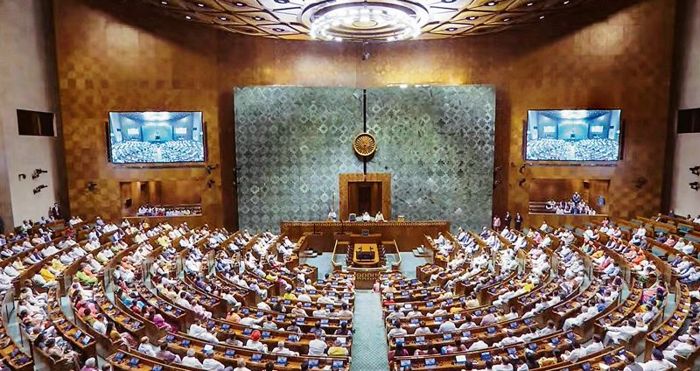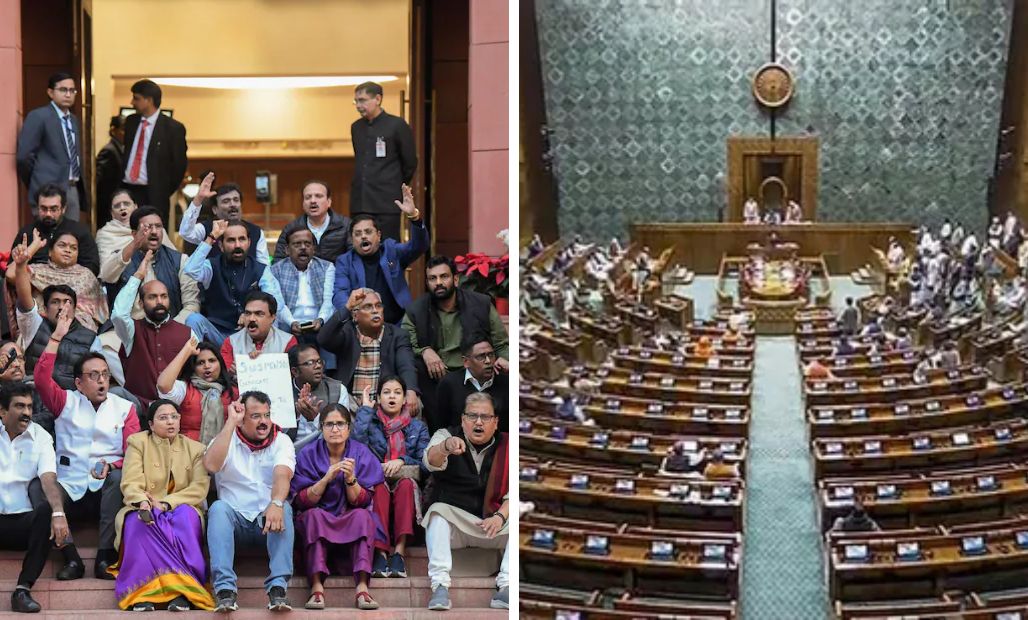In a significant development, 49 opposition lawmakers in India, who have been pressing for a discussion on a recent parliament security breach, faced suspension from the legislature on Tuesday for allegedly disrupting proceedings.
Full Story:
The suspension of 141 Indian lawmakers, 95 from the lower house (Lok Sabha) and 46 from the upper chamber (Rajya Sabha), stems from their persistent demands for a debate on the security breach that occurred on December 13. During this breach, two individuals entered the lower house chamber, releasing gas canisters. The opposition contends that the government’s decision to determine the need for veterinary institutions based solely on cattle population overlooks other animals, including pets.
The controversy deepened as Prime Minister Narendra Modi, while promising an investigation into the security breach, criticized the opposition for insisting on a debate. The government’s action to suspend lawmakers was based on accusations of disruption and unruliness, hindering parliamentary proceedings.

Source: India Today
Critics argue that the mass suspensions, unprecedented in scale, align with Modi’s authoritarian approach. The government’s assertion that the opposition is corrupt and power-hungry further intensifies the political divide.
Notable instances of opposition leaders facing allegations and subsequent action include the expulsion of Mahua Moitra over misconduct and the cancellation of Rahul Gandhi’s parliamentary membership after a defamation conviction. Moitra has challenged her removal in the country’s top court, emphasizing the political motivations behind such actions.
As the opposition accuses the government of attacking democracy, silent demonstrations and protests against the “murder of democracy” continue. The opposition warns that an opposition-less parliament enables the government to push through legislation without meaningful debate, potentially stifling dissent.

Source: The Tribune India
Despite the absence of opposition lawmakers, parliamentary processes can proceed, meeting the quorum requirements with the governing party’s majority. However, critics argue that leveraging numerical strength to silence opposing voices contradicts democratic principles.
Prime Minister Modi, acknowledging the seriousness of the security breach, opposes the need for a debate, emphasizing the ongoing investigation into the matter. In response to the suspension, opposition lawmakers condemn the government’s actions, characterizing them as dictatorial. With an opposition-less parliament, concerns rise about the government’s ability to pass legislation without adequate debate, potentially stifling dissenting voices.



















































































